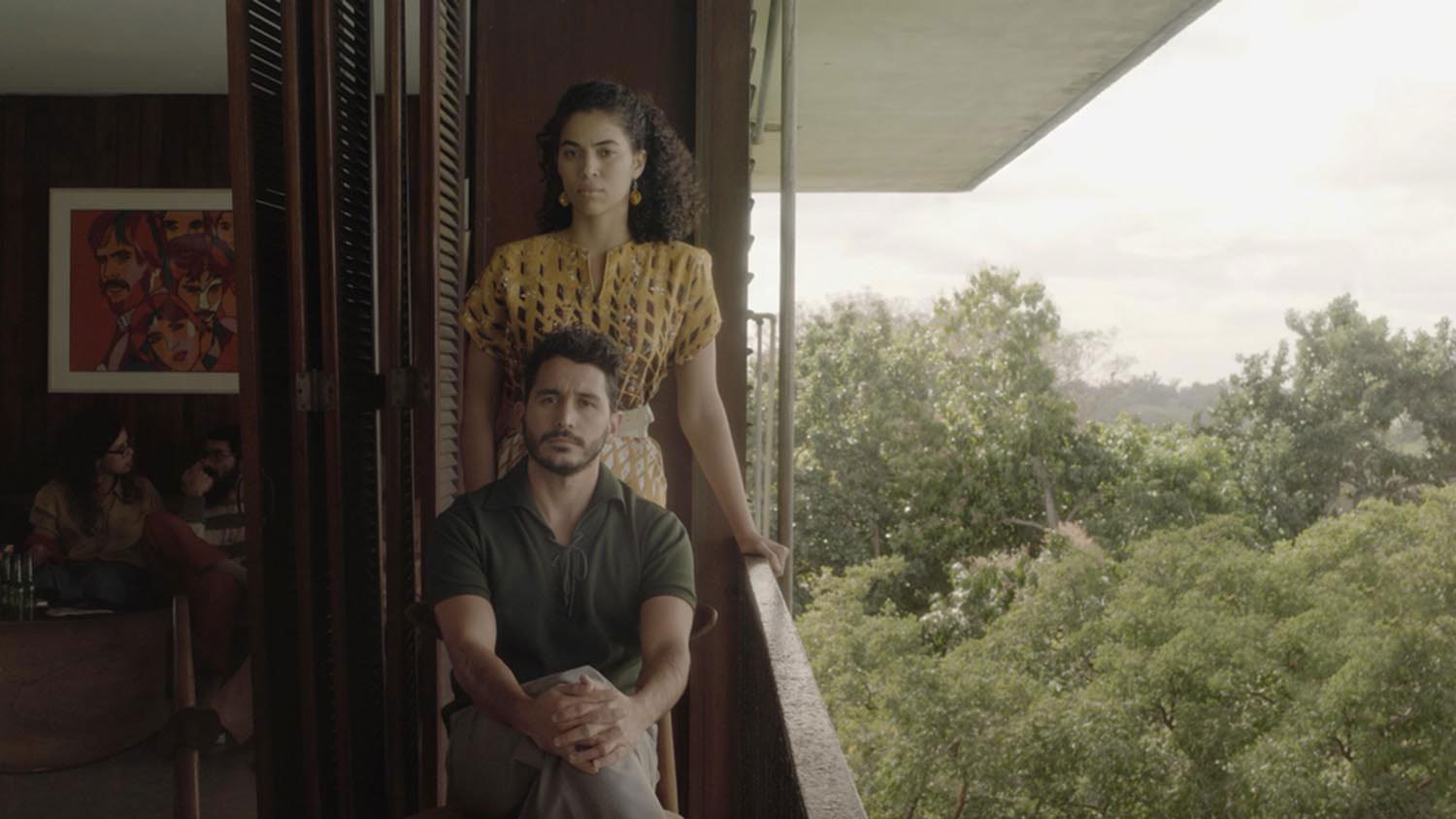“Here I was free to create”
Carlos Lechuga doesn’t pull punches. The Cuban filmmaker established his reputation with two excellent, independently made features, Molasses (2012) and Santa and Andres (2015), realist dramas that critiqued the Communist state. When the latter film was banned in Cuba, Lechuga’s future seemed uncertain. Now he’s back with a provocative new short, and a renewed sense of purpose.
Set in the 1970s, the dialogue-free Generation centres on a group of Cuba’s jeunesse dorée at a large multi-level house perched, ominously, on a precipice. The camera observes the sepia-hued action with a detached irony, as the young people mix and mingle before proceeding to the rooftop where, one by one, they calmly step off the edge. The death of a generation in just under six minutes, set to a rousing bolero.
While Generation is no less political than Lechuga’s previous films, it nevertheless represents a new artistic direction for the thirty-seven-year-old. Jonathan Ali speaks with him about this shift, and Vicenta B, the next feature he plans to make.
What prompted Generation?
After the censorship of Santa and Andres, I was hopeless and without a clear project. Then, like a miracle, [the Cuban artist] Marco Castillo called me. He was preparing for the Havana Biennial and wanted to give me the opportunity to shoot again. It was to be a work of video art. We started working with mood, trying not to make a conventional movie. We studied the Cuban photographers of the 70s, and made a homage to them.
Where did the concept come from?
The original idea came from Marco: a group of people in a house killing themselves, representing an entire generation that the country messed up, that the government tore apart. I wrote a short script and made a huge mood board. I tried to imbue each of the images with personal drama, to create a concentrated capsule of every moment in the house. Making this film was like a jump into the non-narrative question. In my previous films I had this component, but the narrative component always won the battle. Here I was free to create.
Tell me about “Polvada Mojada”, the Beatriz Márquez song that scores the film.
I chose it because I have an old record of it — late 70s, early 80s — and I listened to it and I thought: this is it. In Cuba, Beatriz is called La Musicalisima — the most musical voice. She is very famous and was very happy to work with us.
This new direction in your work comes as you prepare to make your third feature, Vicenta B, your most autobiographical film yet.
Vicenta B is the story of my grandma, who was a fortune-teller. It’s the story of an Afro-Cuban woman who has a crisis and starts to lose her faith. It’s an opportunity to give a voice to a huge group of people who don’t appear frequently in Cuban cinema, and to vindicate Afro-Cuban beliefs.
You’ve said the idea for the film was prompted by the idea of “the existential crisis of a black woman.”
In cinema, we’re used to seeing the existential crises of white and First World women characters, like in Ingmar Bergman’s Persona. I’m tired that every time we film the problems of Caribbean women we only see material problems — relationship or money issues. I want to go deeper, and in a very sensual and subtle mood. That’s why Generation is a bridge in my career. I’m changing, entering a new period, like a painter.
So you’re finished with making overtly political films?
Yes. I’ve already made them. And I was brave to do it. But I’m not interested any more in that. I’m going to make more personal films and pray for a better country.
Do you anticipate any challenges with the authorities as you go into production on Vicenta B?
If I want to make films, I cannot think about these people. The fear makes you freeze, and stop. I’m not going to stop, even if I have to shoot the film in my house. One thing is true: I’m going to continue being independent.
Generation
Directors: Carlos Lechuga and Marco Castillo
Cuba
6 minutes


















